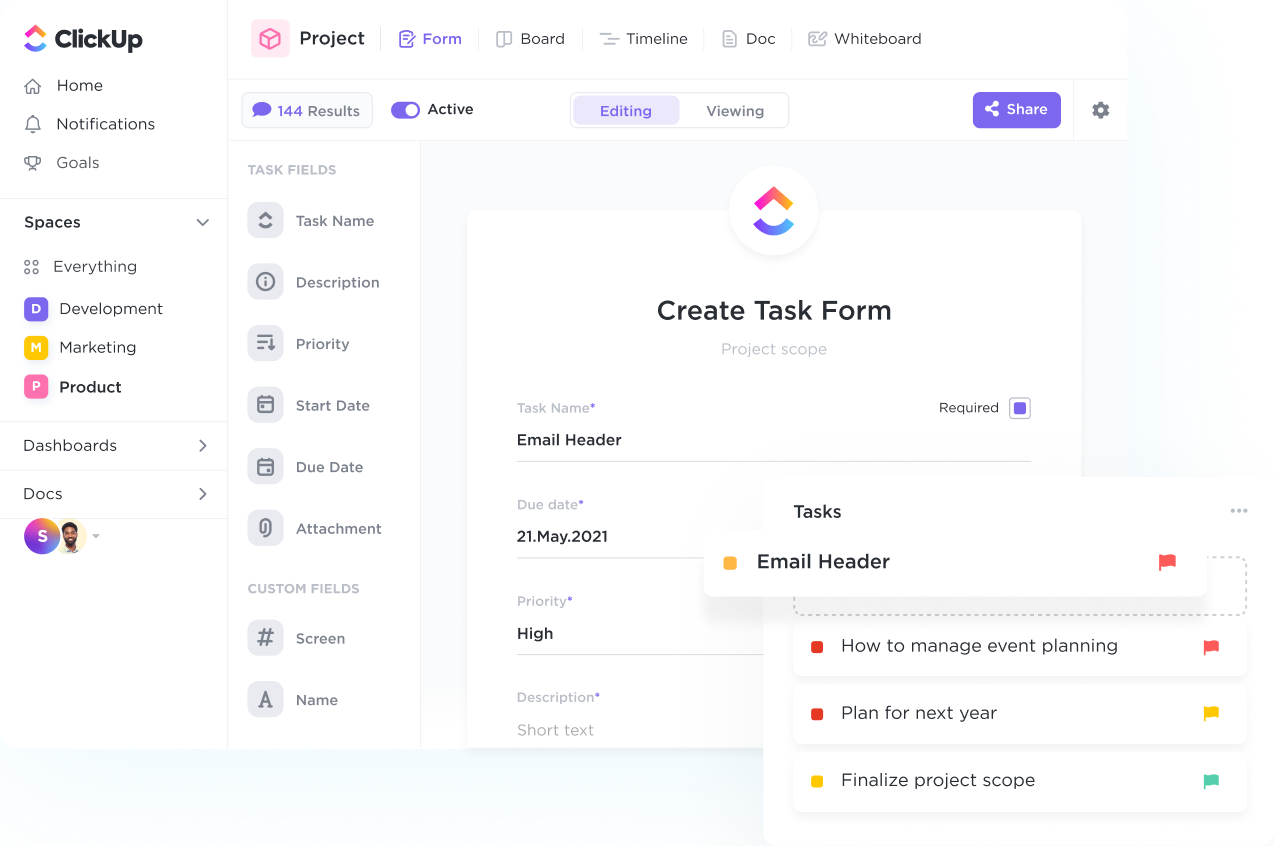See client relationships at a glance.
Manage everything from sales pipelines, customer engagement, and orders with ClickUp's 10+ highly flexible views. Easily track and manage your accounts on a List, Kanban Board, Table view, and more.

Transform the way your Local Government operates with ClickUp's customizable CRM system. Streamline citizen interactions, track constituent needs, and improve service delivery all in one place. Empower your team to efficiently manage relationships and drive community engagement with ClickUp's powerful CRM solution.
Free forever.
No credit card.
Trusted by the world’s leading businesses
Manage everything from sales pipelines, customer engagement, and orders with ClickUp's 10+ highly flexible views. Easily track and manage your accounts on a List, Kanban Board, Table view, and more.

Streamline your intake process, organize response data, and automatically create tasks with custom branded Forms powered by conditional logic.

CRM software can help local government agencies improve citizen engagement and communication by centralizing citizen data, enabling personalized interactions, facilitating efficient issue resolution, and providing insights for targeted outreach and service improvements.
Key features and functionalities that a CRM software should have for local government agencies include case management for citizen inquiries and requests, constituent relationship tracking, integration with government databases for data accuracy, reporting for performance measurement, and communication tools for community engagement.
CRM software has been successfully implemented in local government agencies to improve efficiency by centralizing citizen data, streamlining service requests, automating processes, and enhancing communication between departments and residents.